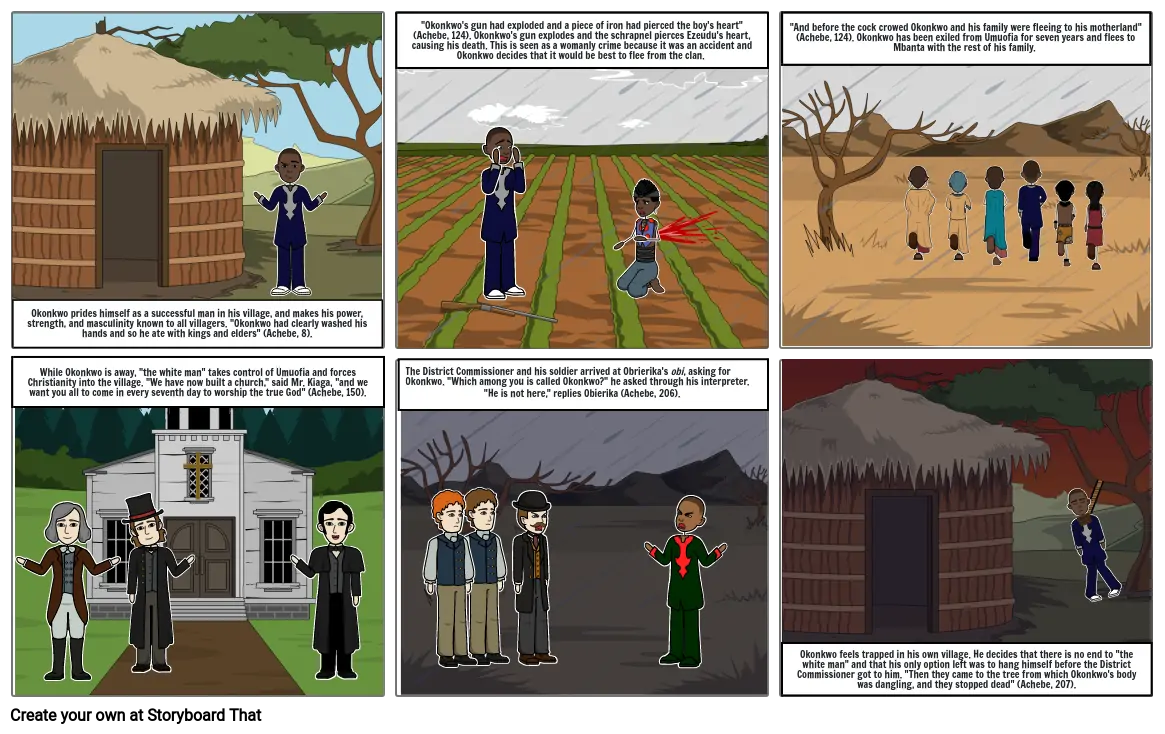
Storyboard Text
- Okonkwo prides himself as a successful man in his village, and makes his power, strength, and masculinity known to all villagers. "Okonkwo had clearly washed his hands and so he ate with kings and elders" (Achebe, 8).
- "Okonkwo's gun had exploded and a piece of iron had pierced the boy's heart" (Achebe, 124). Okonkwo's gun explodes and the schrapnel pierces Ezeudu's heart, causing his death. This is seen as a womanly crime because it was an accident and Okonkwo decides that it would be best to flee from the clan.
- "And before the cock crowed Okonkwo and his family were fleeing to his motherland" (Achebe, 124). Okonkwo has been exiled from Umuofia for seven years and flees to Mbanta with the rest of his family.
- While Okonkwo is away, "the white man" takes control of Umuofia and forces Christianity into the village. "We have now built a church," said Mr. Kiaga, "and we want you all to come in every seventh day to worship the true God" (Achebe, 150).
- The District Commissioner and his soldier arrived at Obrierika's obi, asking for Okonkwo. "Which among you is called Okonkwo?" he asked through his interpreter. "He is not here," replies Obierika (Achebe, 206).
- Okonkwo feels trapped in his own village. He decides that there is no end to "the white man" and that his only option left was to hang himself before the District Commissioner got to him. "Then they came to the tree from which Okonkwo's body was dangling, and they stopped dead" (Achebe, 207).
Over 30 Million Storyboards Created
No Downloads, No Credit Card, and No Login Needed to Try!

